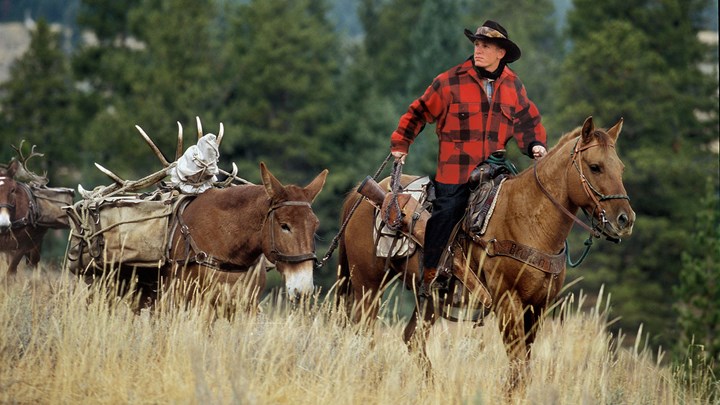
by Phil Phillips - Thursday, October 26, 2023

We hunters were social distancing in some of the most remote places long before any pandemic and understand that any one of us could find ourselves in a life-threatening scenario far from emergency medical assistance. It’s why we make sure someone always knows where we’re hunting and when to expect our return. And it’s why the American Heart Association (AHA) launched a campaign in November 2021 with support from the West Virginia Department of Natural Resources (DNR) to remind hunters to be “heart smart” by staying on top of their blood pressure and cholesterol levels to help prevent cardiac and stroke-related deaths.
“Each year many hunters encounter a heart attack or stroke while hunting and, for many, they are fatal,” said Julie Warden, government relations director for the American Heart Association. “Through this campaign we look forward to sharing simple messaging to help reduce those numbers and bring our hunters home safely.”
The campaign was good timing as the DNR reported that its Natural Resources police officers investigated five incidents where hunters suffered heart attacks while hunting in 2021. According to the AHA, an AHA study shows that the heart goes through more strain while hunting than when exercising on a treadmill, which is not surprising, considering the terrain and conditions we experience provide a far better workout than the gym. This is why the AHA recommends that hunters avoid eating a heavy breakfast and avoid hunting alone. But while we know to carry our cell phones in case of an emergency and to make sure someone knows where we’ll be hunting, the consequences of a life-threatening heart attack or stroke take personal health and safety concerns up a notch.
The AHA’s Heart Healthy Hunting campaign message to hunters is to make sure we know how to recognize the warning signs of a heart attack or stroke. Heart attack signs include chest discomfort, discomfort in other areas of the upper body, shortness of breath and other symptoms including a cold sweat, nausea or lightheadedness. For signs of a stroke, it says to remember the acronym F.A.S.T.: Face drooping or numbing, Arm weakness, Speech difficulty or slurring, and Time to call 9-1-1 to get yourself or your hunting partner to a hospital. Check out the AHA fact sheet below, or click here.

The campaign also shares heart healthy tips, such as remembering to take breaks during physical exertion, know CPR and, for those with a known medical condition such as heart disease or diabetes, to consult a doctor prior to going hunting if there are any medical concerns. It reminds hunters to have a plan in place, which includes making sure others know when you’ll be home, knowing the location of the nearest medical facility and having emergency contacts saved in your phone—basic safety precautions, but a reminder never hurts.
Note that precautions extend to how we go about moving that deer, elk or other big game animal once it hits the ground. Heavy lifting puts strain on the heart—and other body parts, also worth mentioning as I think back to all the whitetail deer that I loaded into the back of my pickup by myself through the years. I’m extra sensitive to this as someone who just went through lumbar spine fusion surgery. While we tend to be in a rush to get back to camp, show our buddies the buck we got and get the meat into the freezer, if I had to do it over again, I would have asked for help loading every one of those bucks. Taking care of yourself seems like good common sense, yet how often do we act without thinking when it comes to routine tasks? Thanks, AHA, for reminding us to be heart smart.
About the Author
Outdoor writer, TV host and farm/ranch real estate associate broker Phil Phillips has hunted five continents, taking 60 species worldwide. Prior to hosting hunting programs, he started Colorado's first Ranching for Wildlife Program for antelope. Working alongside professional land managers, he went on to guide clients to 500-plus big-game animals and was named Safari Club International’s (SCI) North American Bowhunting Outfitter of the Year. A Life member of hunter-backed organizations including the NRA, Mule Deer Foundation, Dallas Safari Club, Houston Safari Club Foundation and Safari Club International, he can be reached at [email protected].
E-mail your comments/questions about this site to:
[email protected]
